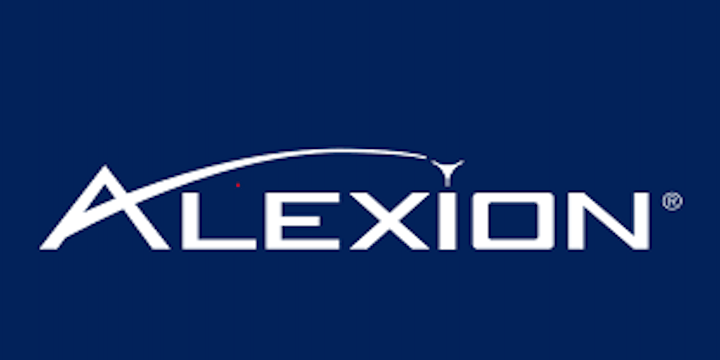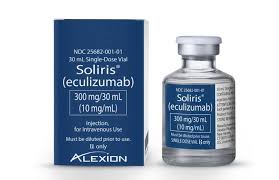Alexion Pays SEC $21 Million for FCPA Violations (Part I of II)

Notwithstanding the pandemic and remote working arrangements, the Securities and Exchange Commission is continuing to bring FCPA enforcement actions. In its latest action, the SEC settled with Alexion Pharmaceuticals for $21 million for foreign bribery and books and records violations.
Alexion is a global pharmaceutical company. Its first drug, Soliris was approved to treat two ultra-rare diseases, paroxysmal nocturnal hemoglobinuria (“PNH”), which causes red blood cells to split apart, and atypical hemolytic uremic syndrome (“aHUS”), which reduces red blood cell count and causes kidney dysfunction.
Alexion engaged in bribery in Turkey and Russia, and accounting violations in Brazil and Colombia. Alexion’s violations revolved around its primary drug, Soliris. Alexion earned a total of over $14 million in unjust profits.
Turkey
From 2010 to 2015, Alexion’s subsidiary in Turkey paid foreign officials for favorable regulatory treatment and to approve prescriptions for patients.
After entering the market in Turkey, Alexion learned that it had to pay bribes to government officials to increase patient approvals. To assist with the patient approval process, Alexion hired a consultant, primarily because of the consultant’s connections to top Turkey Ministry of Health officials.

During the time period of 2010 to 2015, Alexion paid the consultant over $1.3 million, consisting of consulting fees and purported expense reimbursements. The consultant used a portion of these funds to provide government officials with cash, meals and gifts to secure favorable treatment for Soliris. Alexion increased the number of patient approvals, and gained access to confidential information and advance feedback on regulatory submissions.
Alexion disguised some of the payments to the consultant by asking a third-party vendor to pay the consultant and provide false invoices for reimbursement to Alexion. Further, an Alexion Turkey manager directed that the description of the consultant’s claimed expenses should be written in pencil so that they could change or conceal the expenses.
The consultant provided insufficient documentation of expenses or services provided in return for the payments. In fact, for most of the time, the consultant provided little to no explanation for many expenses, including vague descriptions such as ”other expense.” In some cases, the consultant listed the first name of the government official on specific expense reports or notes attached thereto.

In addition to the consultant payments, Alexion managers paid over $100,000 to healthcare professionals (“HCPs”) serving on Ministry of Health commissions. The HCPs were responsible for approving or denying patient prescriptions for Soliris and were key influencers on regulatory matters such as treatment guidelines and reimbursement. These payments were inaccurately reported as honoraria and grants.
For example, from 2012 to 2014, Alexion paid over $15,000 to an HCP who was decision maker for reimbursement criteria for aHUS and for patient prescriptions for Soliris.
Russia
From 2011 to 2015, Alexion’s subsidiary in Russia made payments to foreign officials to influence the allocation of regional healthcare budgets for Soliris, to increase the number of Soliris prescriptions and favorably influence treatment of Soliris.
Alexion entered the Russia market in 2012. Soliris sold through a national patient system and was reimbursed through regional healthcare spending. Alexion paid HCPs in Russia who were employed at government institutions for services, including research, consu;ting on specific topics and hosting educational events. Some of the HCPs served at regional and federal position in the Russian healthcare system. These HCPs provided expert opinions to government decision-makers concerning the allocation of regional healthcare budgets and regulatory treatment of Soliris.
From 2011 to 2015, Alexion paid over $1 million to these HCPs, which included funds to ensure that the HCPs took positions favorable to Alexion in connection with regional budget allocations, to increase prescriptions and to favorably influence regulatory treatment of Soliris. These payments were recorded inaccurately in Alexion’s books and records as honoraria, education expenses, business meeting expenses, and scientific research.
Some examples of Alexion’s illegal payment schemes include:

In 2011 and 2012, Alexion targeted Physician A because Physician A was the chair of the committee that prepared recommendation on allocation of rare disease funds in one region of Russia and because Physician A was assigned to propose medical standards to diagnose and treat PNH. Alexion made honoraria and research payments to Physician A in significant part to influence the regional budget in favor of Soliris. Physician A provided Alexion with a copy of draft diagnostic standards and solicited Alexion’s comments on the standards. Physician A was paid over $100,000 from 2012 to 2015. Soliris was awarded 52 percent of the regional healthcare budget in Physician A’s region in 2013.
From 2011 to 2015, Alexion paid Physicians B and C for honoraria, research and education expenses, and in grants to the institution that employed Physician C. Physicians B and C were geneticists and chief advisors to the Ministry of Health. Physician B was responsible for developing and submitting a list of rare diseases to the Ministry of Health, and Physician C was responsible for advising the Ministry of Health on Alexion’s application to include Soliris on an approved list of drugs to treat certain diseases. Alexion paid both physicians in significant part to influence them in favor of Soliris.
For example, Alexion began paying Physician C and C’s organization after learning that Physician C was assigned responsibility for advising the Ministry of Health regarding Soliris. An internal document stated that Alexion hoped to “receive support to include [ultra-rare diseases treated by Alexion drugs] in all possible lists.” After making the payments to Physician C and his organization, an Alexion employee stated that Physician C “cooperated” with Alexion Russia on the “programs within [Physician C’s] influence on regions in terms of standards and funding, through [Physician C’s] specialized committee.”
Brazil & Colombia
From 2013 to 2015, Alexion Brazil and Alexion Colombia directed third parties to create inaccurate financial records concerning payments to third parties, including patient advocacy organizations (“PAOs”). For example, in 2013 and 2014, an Alexion Brazil manager caused a PAO to pay for the manager’s personal expenses for alcohol and personal travel, and to submit a fictitious invoice, which was reimbursed by Alexion Brazil. In 2014 and 2015, the same manager and an employee in Alexion Brazil submitted grant requests to Alexion’s global grant review committee that misstated how the requested funds would be allocated to the different activities covered in the grant request.

On one occasion in 2014, in order to provide funds to a PAO, an Alexion Colombia senior manager directed a PAO to submit an invoice that falsely described that the funds would be used for “legal support” services. This inaccurate invoice allowed Alexion Colombia to approve the payment locally instead of obtaining approval for the payment through the global grant process, as required by Alexion’s policies.
Further, Alexion Brazil and Alexion Colombia failed to maintain adequate books and records of certain of its financial transactions involving payments to third parties. Notably, both subsidiaries failed to maintain certain documents underlying a substantial number of financial transactions. Additionally, Alexion was cited because some of its employees in Brazil destroyed documents after an internal investigation was initiated.















